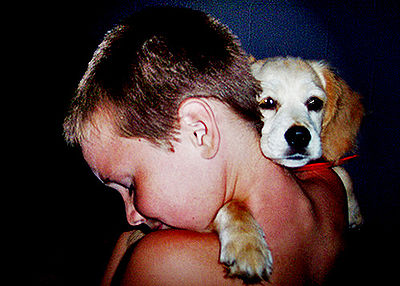
Owning a family pet can be great for kids. Below are some of the benefits as well as things to watch out for.
Contents |
Responsibility
Owning a pet is one of the best ways to teach a child to become responsible. Besides the joy of having a pet, a child must feed the pet on time, keep the habitat and pet clean and exercise the pet. Choose a pet that is appropriate for your child’s age and abilities.
Compassion
Children who are exposed to animals early in life learn not only compassion for animals but compassion for human beings as well. An adult who had a pet as a child will not be cruel to animals. Pets also reduce violence and promote empathy for other people. Caring for a pet involves learning how to read its feelings and this is a skill which can be used in all communication.
Researchers in Poland studied the impact of keeping dogs or cats at home on the social development of 530 children 4-8 years old. Children with pets had higher scores in pro-social behavior and self-reliance than those without pets.
Companionship
Children are likely to develop a very strong bond with a family pet, who will provide them with companionship and build self-esteem. Many children share their innermost hopes and dreams with their pet. Since pets provide children (and adults) with unconditional regard, they provide great psychological benefit.
A study in which a group of children were asked to name their 10 best friends found that pets often ranked higher than human relationships.
Possible pitfalls
One of the concerns regarding children is how to deal with a pet’s death. Since children can become extremely attached to their pets, it is vital to help them through the death of a pet with sensitivity and tact. For more information on this subject, see: Help Your Child Cope with the Loss of a Pet
Another concern is that some pets may bite small children or react violently to a child’s attempt to play with it. It is important to choose a pet which is appropriate for your child’s age and temperament. You also want to teach your pet how to treat your children.
Some children are allergic to pets so you should have your children tested for allergies before bringing home a pet.
Often children convince their parents to adopt a pet by promising to care for it. Once the novelty wears off the parents may be left with the responsibility. Be realistic about how much your child can really take on (considering age, amount of free time and the child’s personality) and be prepared to take over if the child doesn’t follow through.
Related articles:



